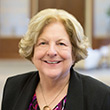Human Capital: The Most Important Investment You Make Is in Yourself
April is recognized as National Financial Literacy Month to highlight the importance of financial literacy.
Here at the St. Louis Fed, we believe so strongly in the importance of financial literacy that we have an entire team dedicated to creating economic and personal finance resources to help teachers, students and everyone else learn more about these topics. I’m honored to lead this team.
What is Human Capital?
Economists use the word “investment” to refer to spending on capital, which can be either:
- Physical capital, like tools and equipment; or
- Human capital, like education and training.
Investment in human capital can mean getting a degree or a diploma. But it also can mean apprenticeship as a carpenter or electrician, or courses in writing computer code. You can think of human capital as the kinds of things you’d list on a résumé: professional development training, work experience, certifications, community and volunteer work, and more.
If a high school student compiling her résumé is captain of the basketball team, I would encourage her to include that experience because it shows leadership and the ability to work on a team: These are valued skills in today’s competitive work environment.
Growing up means making big decisions. This video follows high school student Martina as she learns about the basics: investing in human capital, factors to consider when choosing a college, and ways to fund higher education. It’s part of our Continuing Feducation Video Series.
Why Should You Invest In Yourself?
For the same reasons that businesses invest in physical capital and individuals invest in financial assets—for a payoff of more income in the future. The median weekly earnings in 2016 for a professional degree holder were $1,745, compared to $1,156 for someone with a bachelor’s degree and $692 for a person whose highest degree is a high school diploma, according to the Bureau of Labor Statistics. And, skilled professions are well-paid; the median weekly income in 2016 was $838 for a carpenter and $1,013 for an electrician.
Economic knowledge is part of a person’s basic civic literacy. Being a thinking, voting and productive member of society requires an economic understanding of the world in which we live. The St. Louis Fed has tools to help people from preschool age to adults gain that understanding. We believe that better understanding of economic concepts and principles will result in better decision-making by consumers.
That’s why we created tools to give people the information they need to make better financial decisions. Check out our high-quality lessons, online modules, publications, podcasts, videos and other resources for people of all ages. Using them helps people increase their own human capital. Anyone who visits our award-winning Econ Lowdown program can browse through more than 400 lessons, articles and other activities to learn more about economics and personal finance.
Financial literacy includes knowing that the most important investment you make is in yourself.
Portions of this post ran in the St. Louis Post-Dispatch on April 3, 2018.
Additional Resources
To learn more about human capital, check out the following resources:
- Page One Economics: Investing in Yourself: An Economic Approach to Education Decisions
- Page One Economics: Education, Income, and Wealth
This blog explains everyday economics and the Fed, while also spotlighting St. Louis Fed people and programs. Views expressed are not necessarily those of the St. Louis Fed or Federal Reserve System.
Email Us


